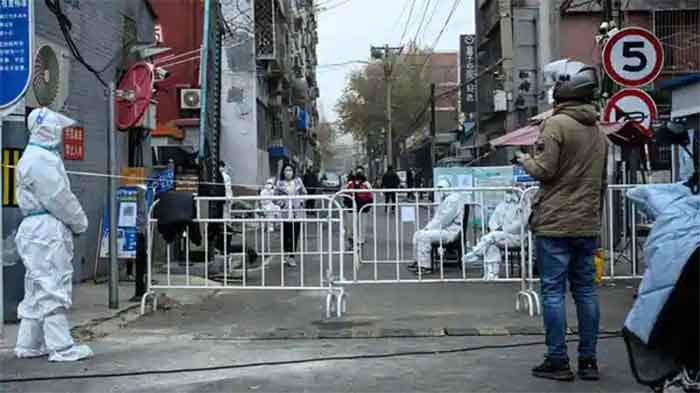Written by Dr. Sudhamshi Beeram, Dr. Arathi P Rao and Prof. K Rajasekharan Nayar

While the Government rolled out the much-awaited vaccination drive against the pandemic, the beneficiaries are hesitating to avail the vaccine due to mis-information and fear. The number of healthcare workers turning up for the vaccination have remained low in many states of India. The reasons which led to the lower turn up are attributed to lack of communication and glitches in the CoWin app (“Vaccination day 1: ‘Wait and watch’ approach, COWIN app snags blamed for 53% turnout in Delhi,” 2021).
The doubts regarding vaccination exist in the medical fraternity, further increasing the uncertainty among common people. The apprehension about the vaccine is fueled by a combination of false claims about the vaccine, perception of herd immunity by the public and fear to try something new (“Vaccine hesitancy: The political strain of healthcare,” August 5). In a survey conducted by Massachusetts Institute of Technology (MIT) in collaboration with Johns Hopkins University, only 10% of the Indians stated that they would not get vaccinated against COVID-19 (Chandrima Banerjee, 2020).
However, the recent scenario of immunization in the country has surfaced differently with a low volunteer count observed in vaccine uptake centres (“COVID-19 vaccination drive in Tamil Nadu: Low volunteer turnout continues on day 2 | Chennai news – Times of India,” 2021). One major reason for vaccine hesitancy could be the concerns about safety given the accelerated release of the vaccine. A part of the general public believes that the vaccine has not passed the regular steps of testing due to limited timeframe.
The false claims on social media about vaccines and misleading statements about their safety have affected the perceptions of the general population regarding the safety of the vaccine. Some Facebook users posted comments stating that they would not be the “guinea pigs” as the vaccination production was rushed. This pattern is very similar to vaccine hesitancy observed among the general population regarding immunization program in general (Nayar et al., 2019I
People in India often adopt a ‘wait and watch’ strategy to try something new until they find it reassuring (“Vaccination day 1: ‘Wait and watch’ approach, COWIN app snags blamed for 53% turnout in Delhi,” 2021). They are concerned about the side-effects and adverse events following immunization of a new vaccine. Many Indians appear hesitant to get vaccinated for COVID-19 as infections have fallen sharply since last year. They claim to be moving towards herd immunity and would no longer require a vaccine.
As it appears, some of the key reasons for the hesitancy are limited information about the disease, vaccine efficacy levels and possible side-effects. There is a need for creating more awareness and building confidence among people by addressing the fears. Throughout the pandemic, misinformation was a recurring concern and the infodemic had influenced the rate of vaccine acceptance negatively.
False and misleading statements have to be debunked by providing facts. For example, the misconception of speedy development of vaccines was defended by Prof Andrew Pollard, head of the Oxford Vaccine Group by saying that rigorous safety processes were included in all clinical trials (Goodman & Carmichael, 2020). It is known that the acceleration of administrative and funding processes and the huge interest in the trial lessened the time spent searching for volunteers (Goodman & Carmichael, 2020).
Acknowledging the reasons for hesitancy and maintaining transparency between the vaccine manufacturers, public health providers and common people are crucial to bridge the information gaps. The lack of confidence in some individuals may affect others’ behaviour and intentions to receive vaccination (Chandrima Banerjee, 2020). Health literacy directed towards attitude and vaccine hesitancy is termed as ‘vaccine literacy’ (Lorini et al., 2018). In the present scenario, strengthening vaccine literacy to seek out right information may influence vaccine uptake.
The government, therefore, may also have to strategically convince people to opt for the vaccine. Use of the current media to refocus attention on positive effects of vaccines can be a useful strategy. Reassurance is the key for alleviating anxiety and fear. Hence, the emphasis must be on ‘proving to the people’ the efficacy of vaccine on a much more convincing and larger scale. Communication and marketing approach alone cannot yield results. A continued commitment to ensure safety of vaccines and responsible implementation of vaccine programs is essential to achieve widespread public acceptance.
Dr. Sudhamshi Beeram has a bachelor’s degree in Naturopathy and Yogic Sciences and is currently a postgraduate student, pursuing Master of Public Health (Global Health) at Prasanna School of Public Health, Manipal Academy of Higher Education (MAHE), Manipal, India.
Dr. Arathi P Rao is the Coordinator of MPH Programme and the Head of Manipal Health Literacy Unit at Prasanna School of Public Health, Manipal Academy of Higher Education (MAHE), Manipal, India.
References
Chandrima Banerjee. (2020, September 16). Coronavirus vaccine news: Why would you not want to take a Covid vaccine? The Times of India. https://timesofindia.indiatimes.com/india/why-would-you-not-want-to-take-a-covid-vaccine/articleshow/78140327.cms
COVID-19 vaccination drive in Tamil Nadu: Low volunteer turnout continues on day 2 | Chennai news. (2021, January 18). The Times of India.
Goodman, J., & Carmichael, F. (2020, July 25). Coronavirus: False and misleading claims about vaccines debunked. BBC News. https://www.bbc.com/news/53525002
Lorini, C., Santomauro, F., Donzellini, M., Capecchi, L., Bechini, A., Boccalini, S., & Bonaccorsi, G. (2018). Health literacy and vaccination: A systematic review. Human Vaccines & Immunotherapeutics, 14(2), 478-488.
Nayar, Rajasekharan K. et al. (2019). Methods to overcome Vaccine Hesitancy. The Lancet., 393 (10177),1203-04.
Vaccination day 1: ‘Wait and watch’ approach, Cowin app snags blamed for 53% turnout in Delhi. (2021, January 17). The Economic Times. https://economictimes.indiatimes.com/industry/healthcare/biotech/healthcare/vaccination-wait-and-watch-approach-cowin-aap-snags-blamed-for-53-turnout-in-delhi-on-day-1/articleshow/80314584.cms?from=mdr
Vaccine hesitancy: The political strain of (and on) healthcare. (August 5). Skills Platform – The eLearning & Training Marketplace. https://www.skillsplatform.org/blog/vaccine-hesitancy
IF YOU LIKED THE ARTICLE SUPPORT PEOPLE’S JOURNALISM















































